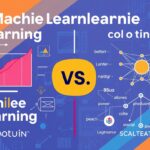Artificial Intelligence (AI) has transcended its roots as a mere concept in science fiction, embedding itself into the very fabric of our daily lives. From enhancing our online shopping experience to revolutionizing healthcare, AI is reshaping how we navigate the world. This article delves into the significance of AI, exploring its profound impact on our everyday routines, the advancements it brings to healthcare and personal wellness, and the opportunities and challenges that lie ahead as we venture further into the AI-driven future.
Key Takeaways
- AI is transforming everyday life by enhancing convenience and efficiency.
- The impact of AI is seen across various sectors, including transportation and finance.
- In healthcare, AI is improving diagnostics and personal wellness management.
- Emerging AI technologies present both exciting opportunities and ethical challenges.
- Understanding AI’s role is key to navigating its effects on our future lifestyle.
Introduction to AI and Its Significance
Artificial Intelligence, commonly referred to as AI, has become a pivotal force in the modern technological landscape. It refers to the simulation of human intelligence processes by machines, particularly computer systems, enabling them to perform tasks that typically require human cognition. The significance of AI spans across various sectors, from healthcare and finance to entertainment and manufacturing. By automating processes, enhancing decision-making, and enabling predictive analytics, AI is not only transforming how businesses operate but also improving the efficiency of everyday tasks. As we delve deeper into the world of AI, it is crucial to understand its implications and the potential it holds for shaping our future.
Impact of AI on Daily Life
The impact of AI on daily life is profound and expansive, reshaping the way we interact with technology and each other. From virtual assistants like Siri and Alexa that help manage our schedules to algorithm-driven recommendations on streaming platforms, AI has seamlessly integrated into our everyday routines. Smart home devices enhance our comfort and security, while AI-driven applications in healthcare are revolutionizing patient care and diagnostics. Additionally, in the realm of transportation, advancements in AI are paving the way for self-driving cars, promising to make our commutes safer and more efficient. As AI continues to evolve, it not only simplifies tasks but also empowers individuals to make more informed decisions, ultimately enhancing productivity and improving the quality of life.
‘The real challenge is not whether machines think but whether men do.’ – B.F. Skinner
AI in Healthcare and Personal Wellness
The integration of AI in healthcare and personal wellness is revolutionizing how we approach health management and clinical practices. By leveraging advanced algorithms and machine learning, AI is transforming the way healthcare providers diagnose and treat diseases, while also empowering individuals to monitor their health more effectively. From predictive analytics that anticipate outbreaks and tailor treatment plans to AI-powered wearable devices that track personal wellness metrics, the potential of AI in this field is vast and impactful. Moreover, AI-driven applications can analyze vast amounts of data to identify patterns and insights, facilitating personalized care that is not only proactive but also preventative. As this technology continues to evolve, the landscape of healthcare will increasingly rely on AI to enhance patient outcomes and promote a healthier society.
The Future of AI: Opportunities and Challenges
The future of AI holds immense potential, offering numerous opportunities for innovation and efficiency across various industries. As businesses increasingly harness the power of artificial intelligence (AI), we can expect transformative changes in sectors such as healthcare, finance, and transportation. For instance, AI-powered algorithms can analyze vast amounts of data to predict health outcomes, streamline financial processes, and enhance logistics management. However, along with these opportunities come significant challenges. Ethical considerations such as bias in AI systems, accountability for AI decision-making, and job displacement due to automation must be addressed to ensure that the benefits of AI are realized universally and responsibly. As we navigate the evolving landscape of AI, it is crucial for stakeholders—ranging from government bodies to private enterprises—to collaborate in creating frameworks that promote innovation while safeguarding societal values.
Frequently Asked Questions
What is AI and why is it important?
AI, or Artificial Intelligence, is the simulation of human intelligence processes by machines, especially computer systems. It’s important because it can analyze vast amounts of data, learn from interactions, and perform tasks that typically require human intelligence, greatly enhancing efficiency and productivity in various fields.
How is AI impacting daily life?
AI impacts daily life in numerous ways, from personal assistants like Siri and Alexa to recommendation systems on streaming services and e-commerce sites. It provides conveniences such as smart home devices, optimized traffic management, and personalized experiences in various applications.
What role does AI play in healthcare?
In healthcare, AI is transforming patient care by improving diagnosis accuracy, personalizing treatment plans, and streamlining administrative tasks. It aids in medical imaging analysis, predictive analytics for patient outcomes, and virtual health assistants for patient monitoring and wellness.
What are the future opportunities of AI?
Future opportunities of AI include advancements in automation, enhanced decision-making capabilities, and the potential for AI to solve complex global challenges such as climate change, resource management, and improving healthcare delivery in underserved regions.
What challenges does AI face in the future?
Challenges facing AI include ethical concerns around privacy and data security, job displacement due to automation, and the need for regulations and standards to ensure responsible development and application of AI technologies.


